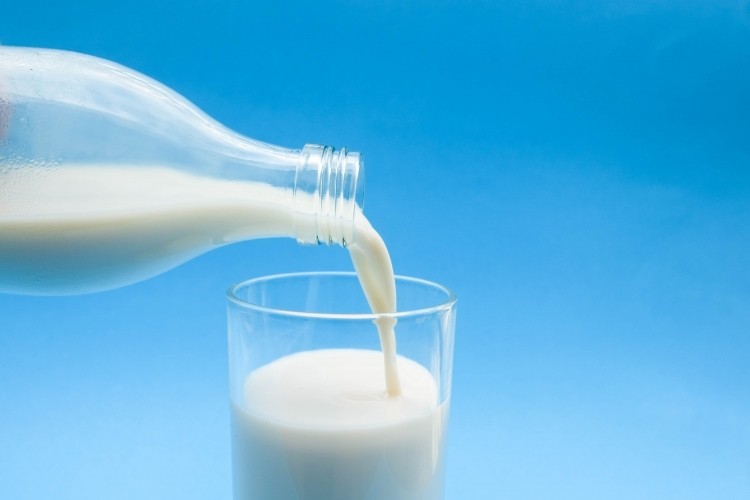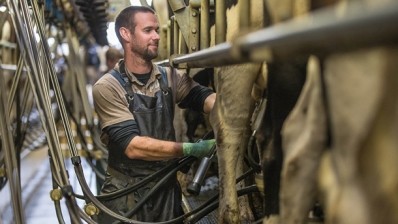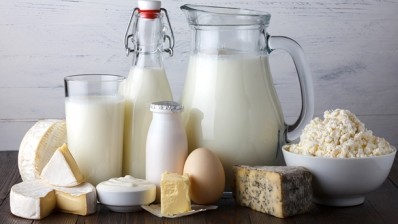Milk’s nutrients ‘helped’ England rugby star’s injury

Marler suffered a hairline fracture in Harlequins’ defeat to Worcester on New Year’s Day, ruling him out of England’s opening two games of the 2017 Six Nations. But, Marler was fit to start against France on Saturday, claiming drinking two pints of whole milk a day helped his recovery.
“I rehabbed the c**p out of it, to be honest, and drank lots of milk,” Marler told the national press. “And that’s it, my body has taken care of the rest.
‘Two pints a day’
“There’s lots of calcium in milk, so that helps with the bones, and teeth. I drank two pints a day, and it’s something I’ll keep doing because it’s really tasty.
“I always thought green top [semi-skimmed] was good for you because it’s reduced fat, but they gave me licence to have blue top [whole], and the odd day I’d have the gold top stuff – the one with like 1,000 calories in one pint.”
Research suggested that milk was “nature’s sports drink”, The Dairy Council claimed, and that it had benefits for muscle recovery and hydration. The Dairy Council’s director of nutrition Anne Mullen said that milk was a great addition to the diet of sportsmen and women.
‘Important for a healthy, balanced diet’
“Milk provides an array of nutrients such as protein, calcium, iodine, B vitamins and phosphorus – all of which are important for a healthy, balanced diet and are beneficial after sport,” Mullen said. “Protein helps and calcium is essential in maintenance of healthy muscles and bones.
“Milk is a natural, tasty and affordable way to help your body get all the nutrients it needs after exercising – and it is important to remember that whole milk is not a ‘high fat’ food. Research suggests that the balance of protein and carbohydrate is exactly what muscles need to recover, and therefore milk is a great addition to the diet.”
Agriculture and Horticulture Development Board Dairy chairman Gwyn Jones said: “Milk has always been seen as really important for teeth and bones and now Joe has shown it really can work.
“It’s great that Joe has highlighted its importance and acknowledged how much it helped his recovery.”
Meanwhile, The Diary Council claimed that the nutritional value of milk and dairy continues to be misunderstood, and that they might play a protective role in long-term heart health.
England extended their unbeaten run to a record 15 matches on Saturday, after beating France 19-16 at Twickenham.
Joe Marler’s milk recovery – at a glance
- Suffered hairline fracture on January 1
- Ruled out for six weeks
- Drank 2 pints of whole milk a day

















